When someone asks me – how do you stay underwater for so long – I immediately feel the need to go into a lengthy conversation regarding air conservation logistics, because like them, I hate ending a dive because I’m low on air.
Although I may be a pretty seasoned diver, I’m still an absolute pig on air. No matter how hard I try, I always find myself needing to surface way sooner than my dive buddy.
So what is the golden secret to extending your air supply? Breathing from a hidden pony bottle? Stealing air from your dive buddies regulator when they’re not looking?
Not all divers breath equally, and though many things play a role in how fast you consume the gas in your tank, there are small things you can do to conserve one of the most precious resources you have underwater.
Proper positioning in the water column will significantly help your air consumption.
This includes keeping your body horizontal instead of vertical and positioning yourself to swim with the current as opposed to fighting against it.
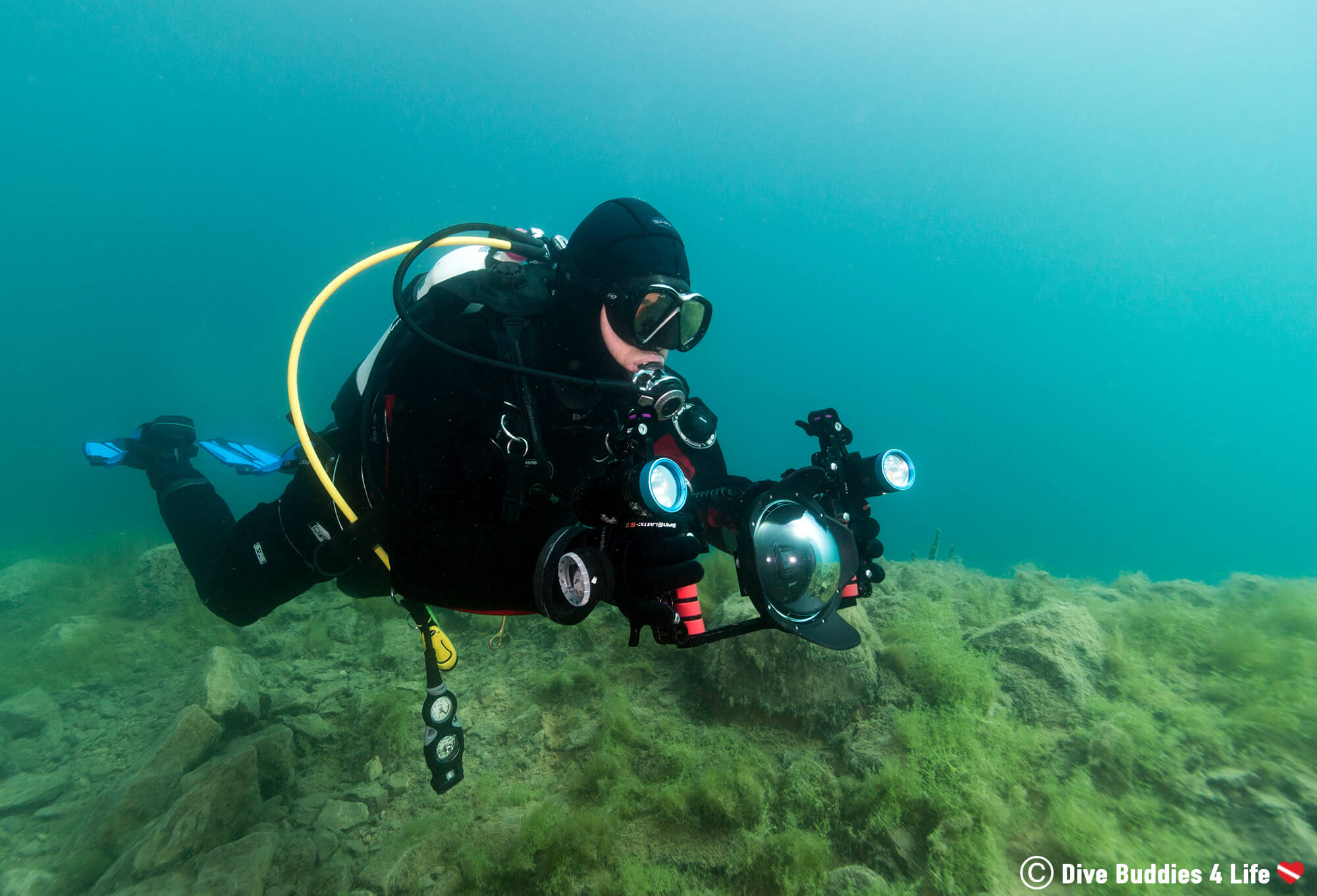
Fighting with your buoyancy and continuously inflating and deflating your BCD will quickly use up your air supply especially when you are at depth.
By mastering neutral buoyancy and getting your trim down to perfection, you can ensure that you are not wasting precious reserves lugging around extra weight.
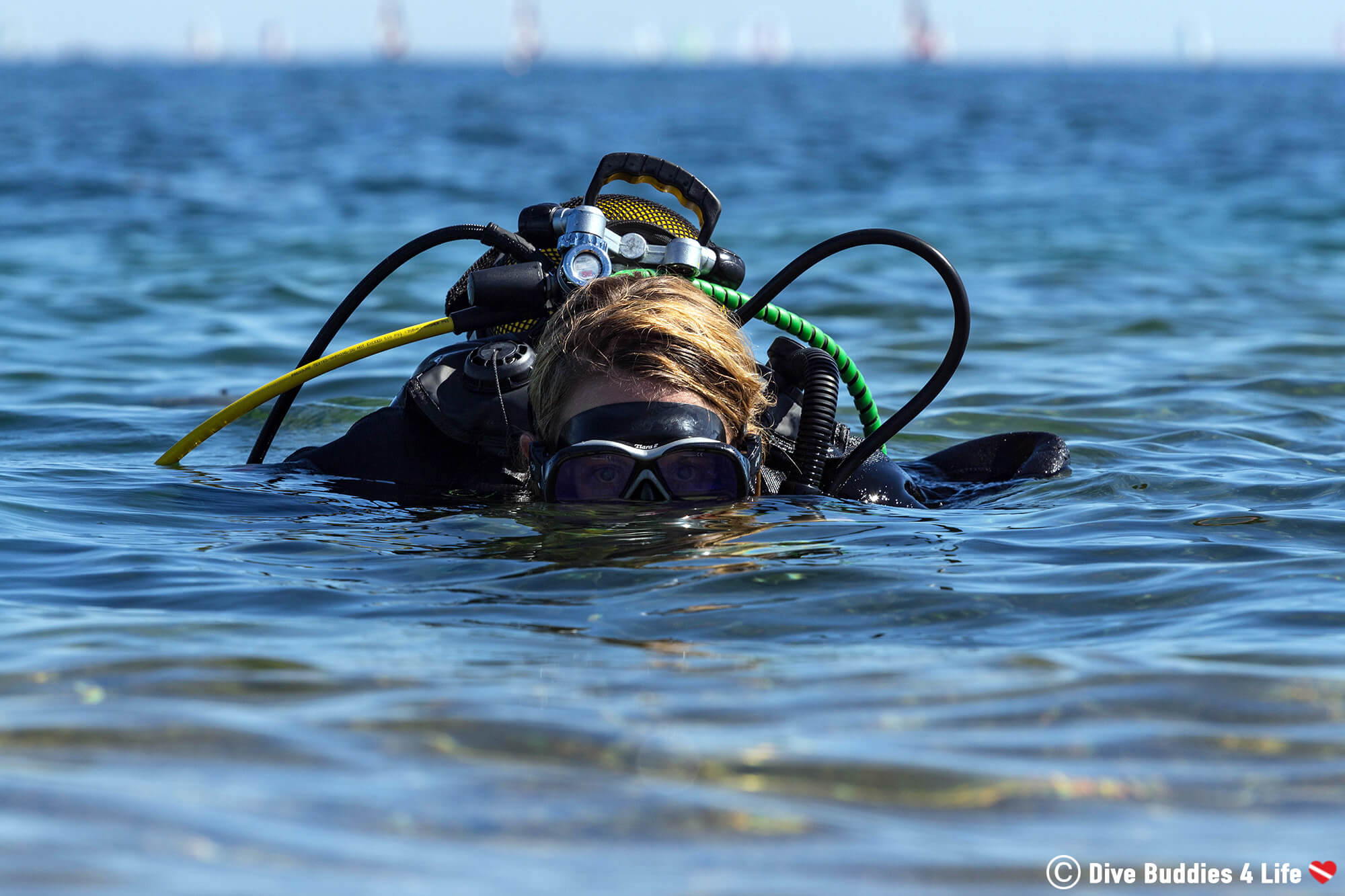
Too much stuff will without a doubt drag you down – all while doing a number on your air supply.
Streamline is the way to be when underwater. Tuck in your hoses and gauges, don’t swim with your arms and minimize your scuba accessories to keep your dive profile slim and trim.
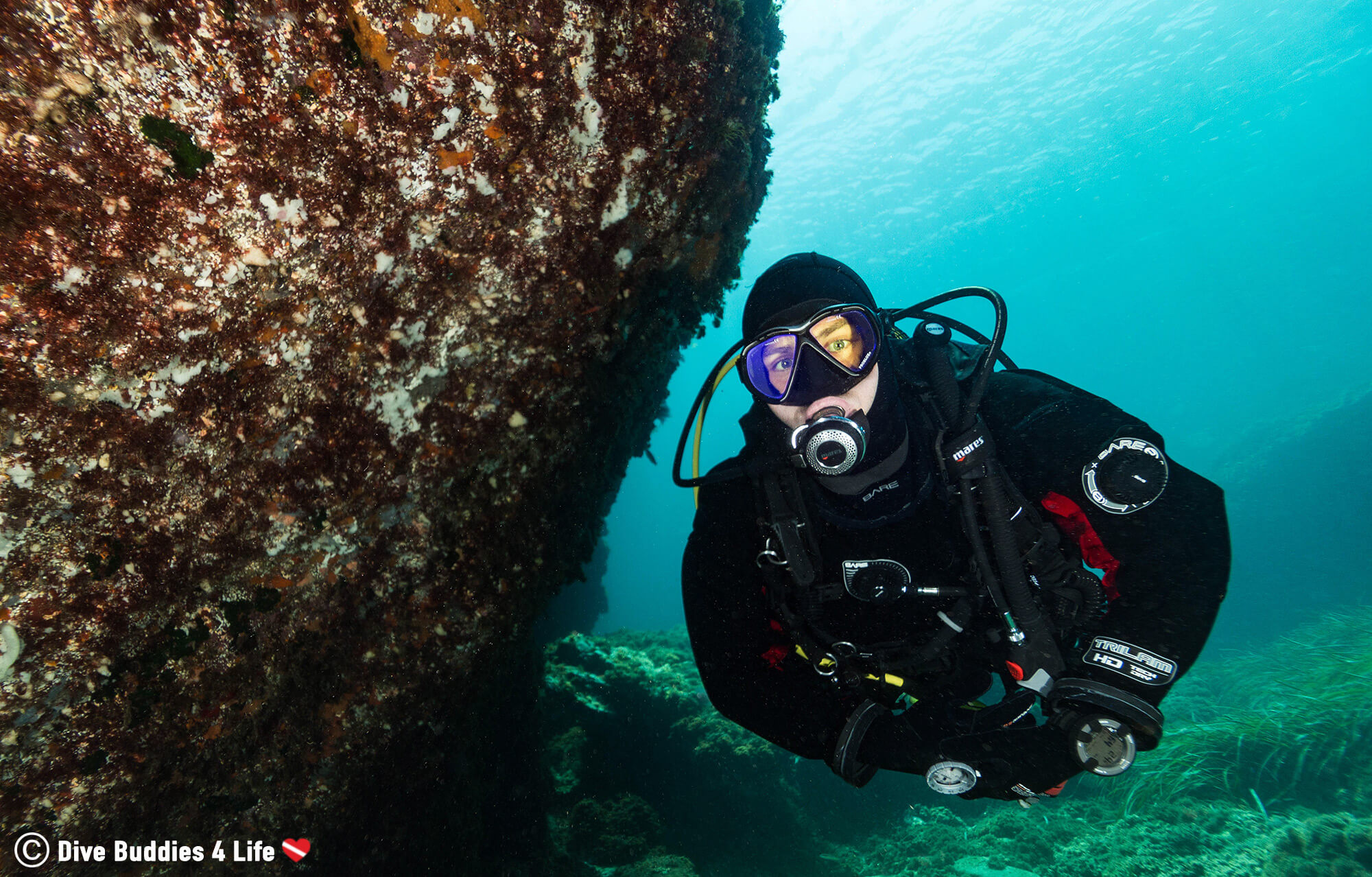
Overall fitness has a significant role in reducing your air consumption while scuba diving.
I’m not going to get into the science, but the gist of it is; by working your muscles and heart, your body will require less oxygen and therefore less air to keep itself moving.
Good cross training exercises for scuba diving include endurance sports such as swimming, running, biking or anything that gets your heart pumping and works the cardiovascular system.
Water 800 times more dense than air. Therefore it takes more effort to move through it.
Instead of huffing and puffing your way around a shipwreck at race speed, calm, slow and relaxed movements can you get to where you want to go all while keeping your breathing rate down. If you’re heading down for a deep dive try using the guideline hand over hand to pull yourself down instead of wasting energy (and air) finning.
Slow is the way to go!
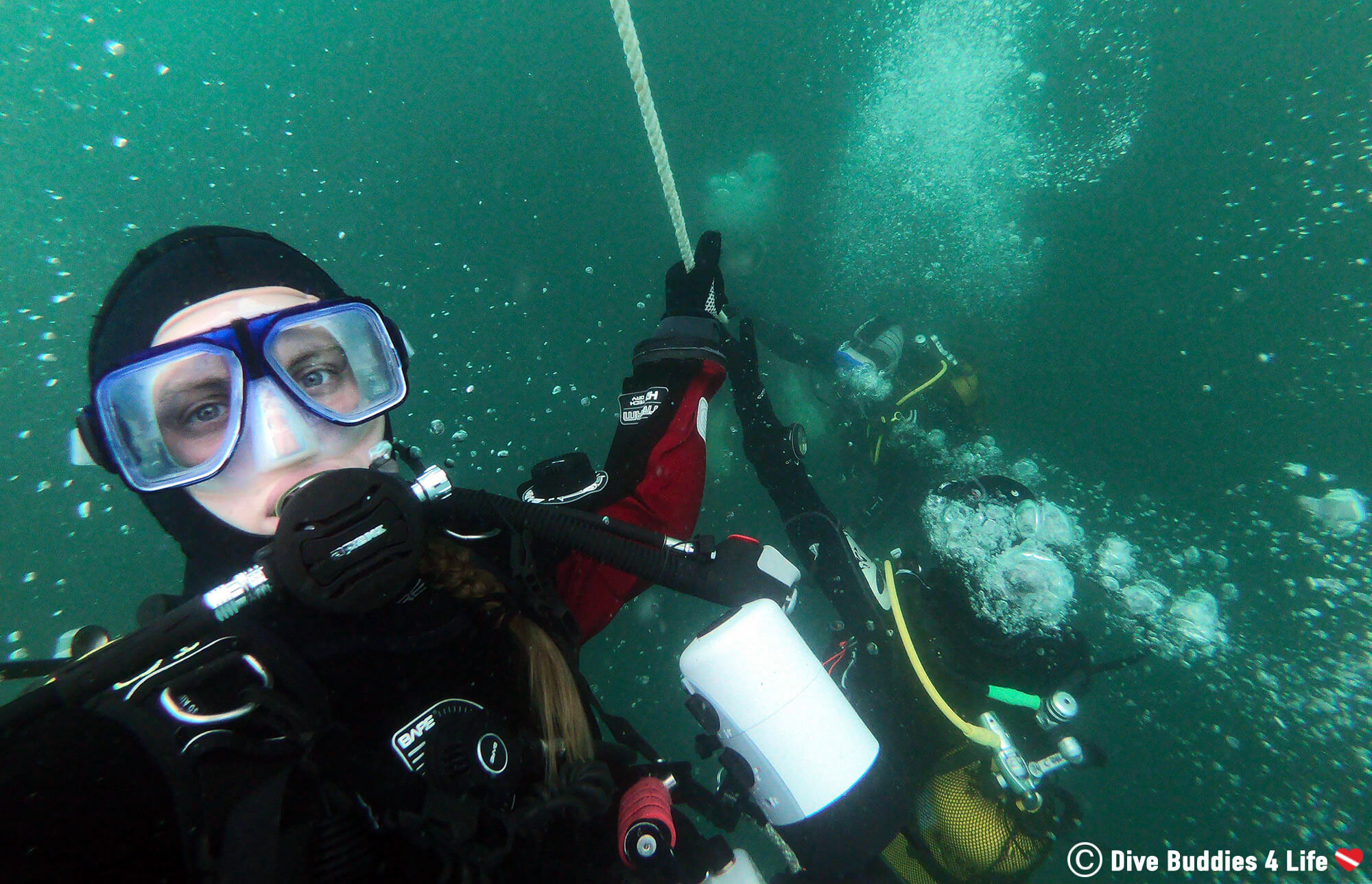
If you’re cold, you suck back more air. That’s because your body wastes energy trying to stay warm and therefore consumes more oxygen in the process.
By making sure you have adequate thermal protection during a dive, you are not only making your time underwater more enjoyable, but you are also conserving your air.
Are you someone who gets chilled easily? Consider diving with a neoprene hood. They may not look the greatest but statistics say that close to 40% of body heat is lost from your head.
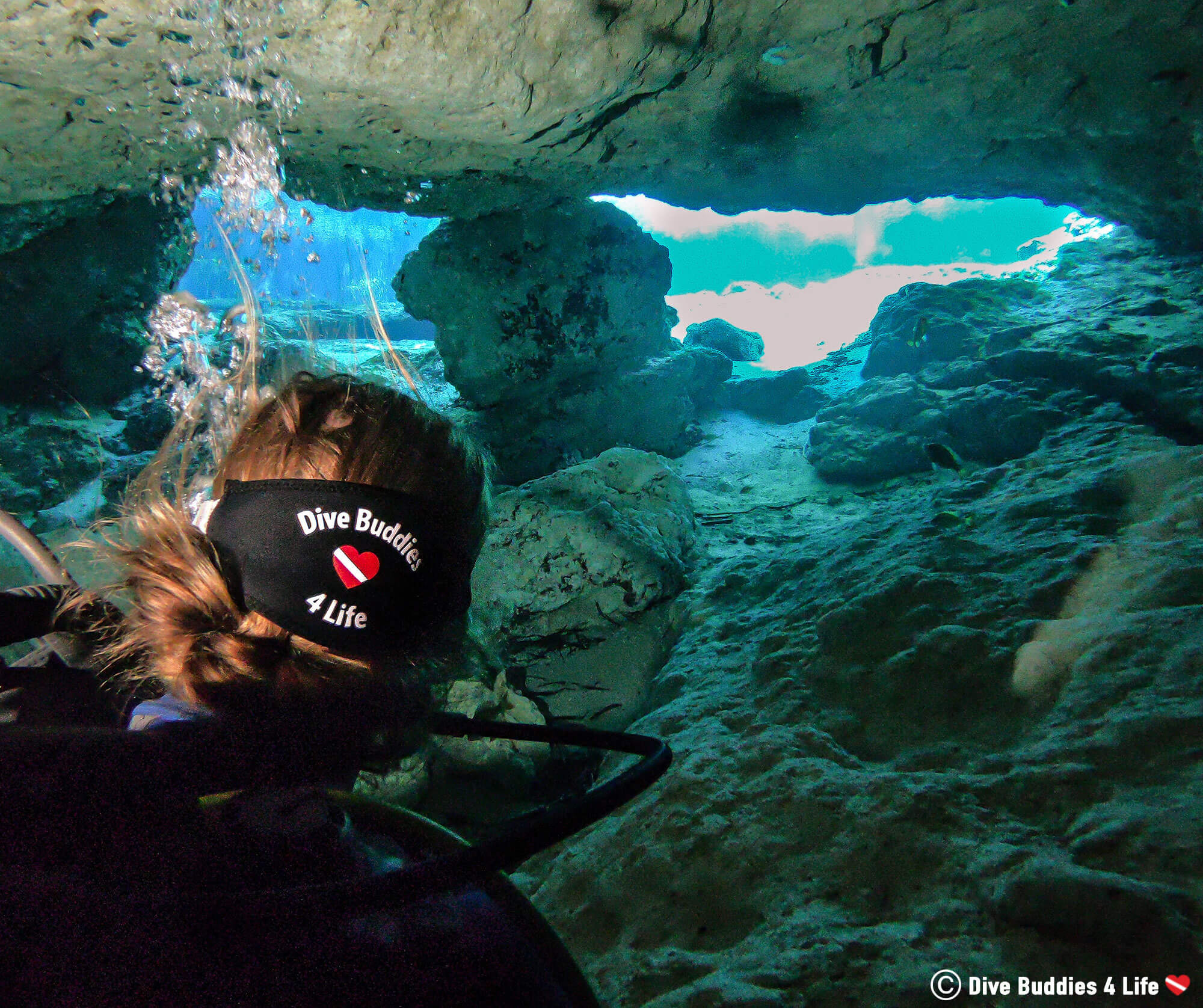
Conserving your air while scuba diving is an important skill to master. The more you can optimize your air intake the longer you will be able to stay underwater. Not only will this enable you to extend your dive time but you will also get more from your diving experience.
What kinds of things do you do to help conserve your air? Leave us a message at the bottom.
Writers Note: This post may contain affiliate links. We will make a small commission if you make a purchase through one of these links, at no extra cost to you. See full disclosure and disclaimer policy here.


Fluodiving, fluorescent night diving, UV diving, glow diving - goes by many names. But no matter what you call this vibrant type of diving, the optical magic of fluorescence adds a totally new dimension to your night diving repertoire.

Whether sunk on purpose or as the result of a mishap, it’s a breathtaking experience to be able to visit a sunken wreck while scuba diving.
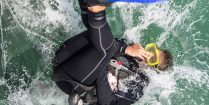
No matter what level of diver you are, scuba backroll entries are a fun-filled way to get off the dive boat and get into the water.
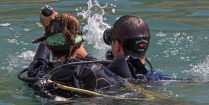
Becoming a PADI Rescue Diver is a great way to further your knowledge and give yourself the tools to stay safe on a dive.

The day is over and the sun is setting on a day of scuba diving but is it really time to hang up your fins, or do you dare slip back into the water at night?

Hair versus scuba, now that's a combination that doesn't mix. So how do you stay away from the tares, tangles and hours upon hours of post-dive hair brushing?

Are you a pig on air? You are not alone. Find out how you can get more out of your scuba diving tank.

Everybody loves the idea of scuba diving, but the aspect of post dive cleanup is a much different story. It’s long, it’s tedious and it almost impossible to do it without getting wet - yet again.
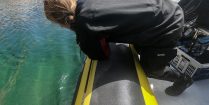
As a diver, sometimes you get hit with seasickness. Here are our solutions to dealing with seasickness before and during your dive.

Organizing a dive vacation can be a challenge. To help, keep these four questions in mind when planning your next scuba diving vacation.

Sometimes a dive doesn’t go according to plan and when that happens, it’s important to be seen. Learn all about surface markers and why you should have one.

It's not easy being green in a day and age where everything is plastic and waste. Let sustainability lead the way as you explore the underwater world.

Many scuba diving agencies that play a role in training divers. Here is a look at SEI, PADI, NAUI, and SSI, the top scuba agencies in the world.
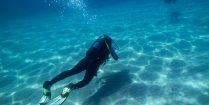
Thinking about sprouting gills and making the plunge into the underwater world? Find out if you're cut out to become an Open Water scuba diver.
